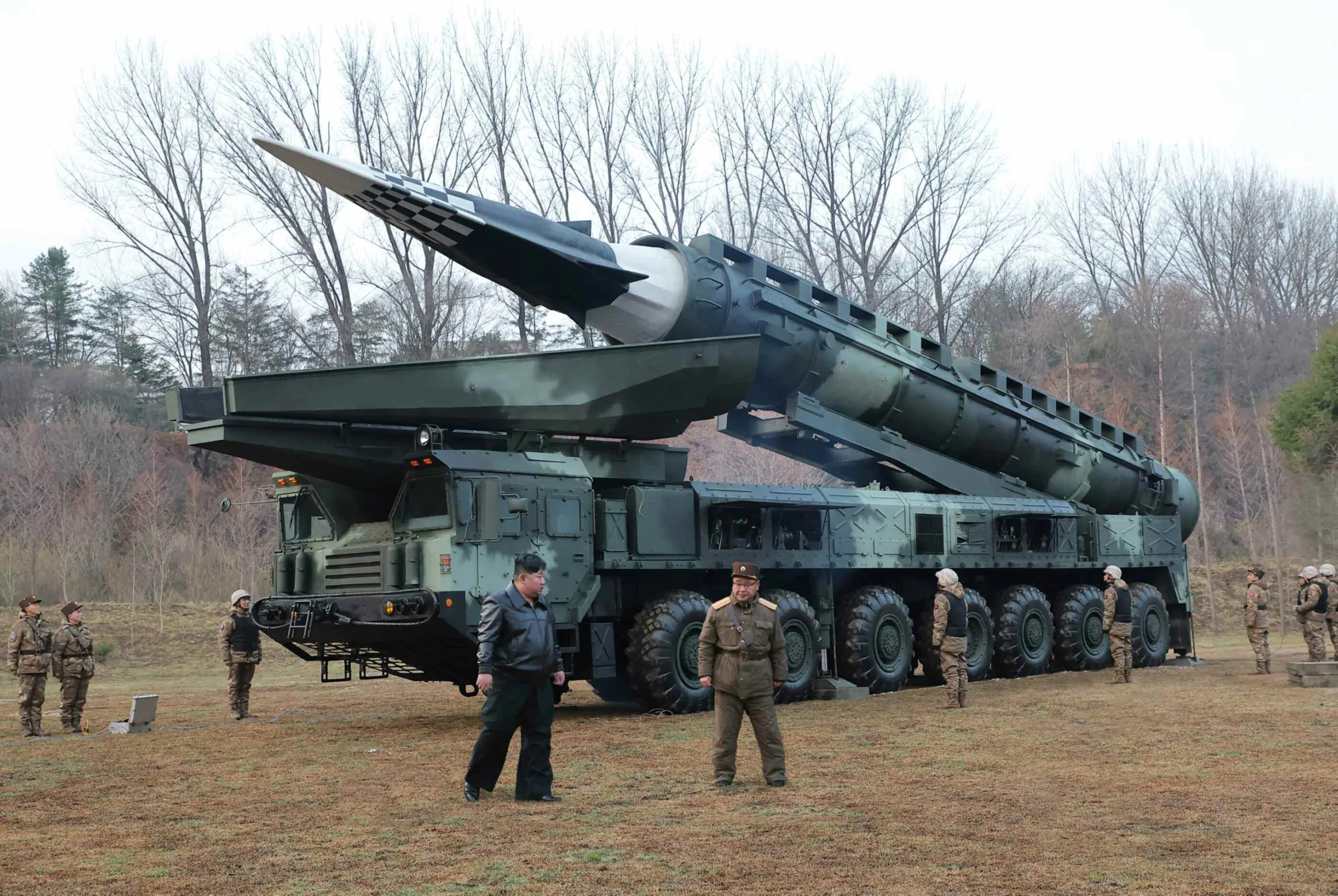North Korea’s Bold Missile Launch: A Stark Warning to the West
On October 30, 2024, North Korea conducted a significant missile launch, marking its first intercontinental ballistic missile (ICBM) test in nearly a year. This event has raised alarms across the globe, particularly in the West, as it serves as a stark reminder of North Korea’s advancing military capabilities. The missile launch is not just a demonstration of power; it is a calculated move by North Korean leader Kim Jong Un to assert his nation’s position amid rising geopolitical tensions.
The missile achieved unprecedented heights, reaching an altitude of over 7,000 kilometers (approximately 4,349 miles) and maintaining a flight duration of 87 minutes. This performance surpasses previous tests and indicates significant advancements in North Korea’s missile technology. Analysts suggest that the missile may have utilized a newly designed solid-fuel booster, enhancing its rapid deployment capabilities compared to traditional liquid-fueled systems. This development is particularly concerning for U.S. security concerns, as it suggests that North Korea is making strides toward a more reliable long-range missile capability.
Kim Jong Un observed the launch and described it as a “proper military action.” He emphasized that the test serves to communicate counteractions against perceived threats from rivals, reinforcing North Korea’s strategic deterrence capabilities. This statement underscores the regime’s intent to project strength and resolve in the face of international scrutiny. The launch has been framed as a necessary step to ensure national security, a narrative that resonates with the North Korean populace.
The international community reacted swiftly to the missile launch, with immediate condemnation from various bodies, including the United Nations and the European Union. Both organizations labeled the launch a violation of Security Council resolutions, with UN Secretary-General Antonio Guterres expressing strong disapproval of North Korea’s actions. The global response highlights the ongoing tensions surrounding North Korea’s military ambitions and the potential implications for regional stability.
Adding to the complexity of the situation, South Korean intelligence reports indicate that North Korea may be preparing for its seventh nuclear test. This suggests that the recent missile launch could be part of a broader strategy to enhance its nuclear capabilities and develop deliverable systems capable of reaching the U.S. The potential for further nuclear advancements raises significant concerns among neighboring countries and the international community.
The missile was launched using a “lofted trajectory,” which minimizes risks to neighboring countries by sending it almost straight up before descending back down over North Korean territory. This method of launch not only demonstrates technical proficiency but also reflects a strategic approach to missile testing that seeks to avoid immediate regional fallout. However, the implications of such tests extend far beyond the Korean Peninsula, affecting global security dynamics.
Experts believe that this test is crucial for North Korea to gather data on re-entry technology for long-range warheads. This technology is essential for developing reliable ICBMs capable of striking distant targets, including the U.S. The successful execution of this test indicates that North Korea is not only advancing its missile capabilities but is also committed to enhancing its military technology to ensure its deterrent posture.
The geopolitical landscape is further complicated by reports indicating that North Korea has sent approximately 10,000 troops to assist Russia in its conflict with Ukraine. This development raises concerns about the implications for regional security and international relations. The collaboration between North Korea and Russia could signal a shift in alliances and a potential escalation of military activities in the region.
As observers analyze the implications of this missile launch, many speculate that it serves not only as a demonstration of military prowess but also as a political statement aimed at influencing upcoming U.S. elections. By showcasing its military capabilities, North Korea seeks to assert its position on the global stage and remind the West of its strategic importance. The timing of the launch, amid rising tensions and political uncertainty in the U.S., suggests a calculated effort to leverage its military advancements for political gain.
In conclusion, North Korea’s recent missile launch is a significant event that underscores the ongoing challenges in addressing the regime’s military ambitions. The advancements in missile technology, coupled with the potential for further nuclear tests, pose serious U.S. security concerns and highlight the need for a coordinated international response. As the world watches closely, the implications of this launch will likely reverberate through diplomatic channels and influence the geopolitical landscape for years to come. The bold actions of Kim Jong Un serve as a stark warning to the West, reminding all that North Korea remains a formidable player on the global stage.






Leave a Comment